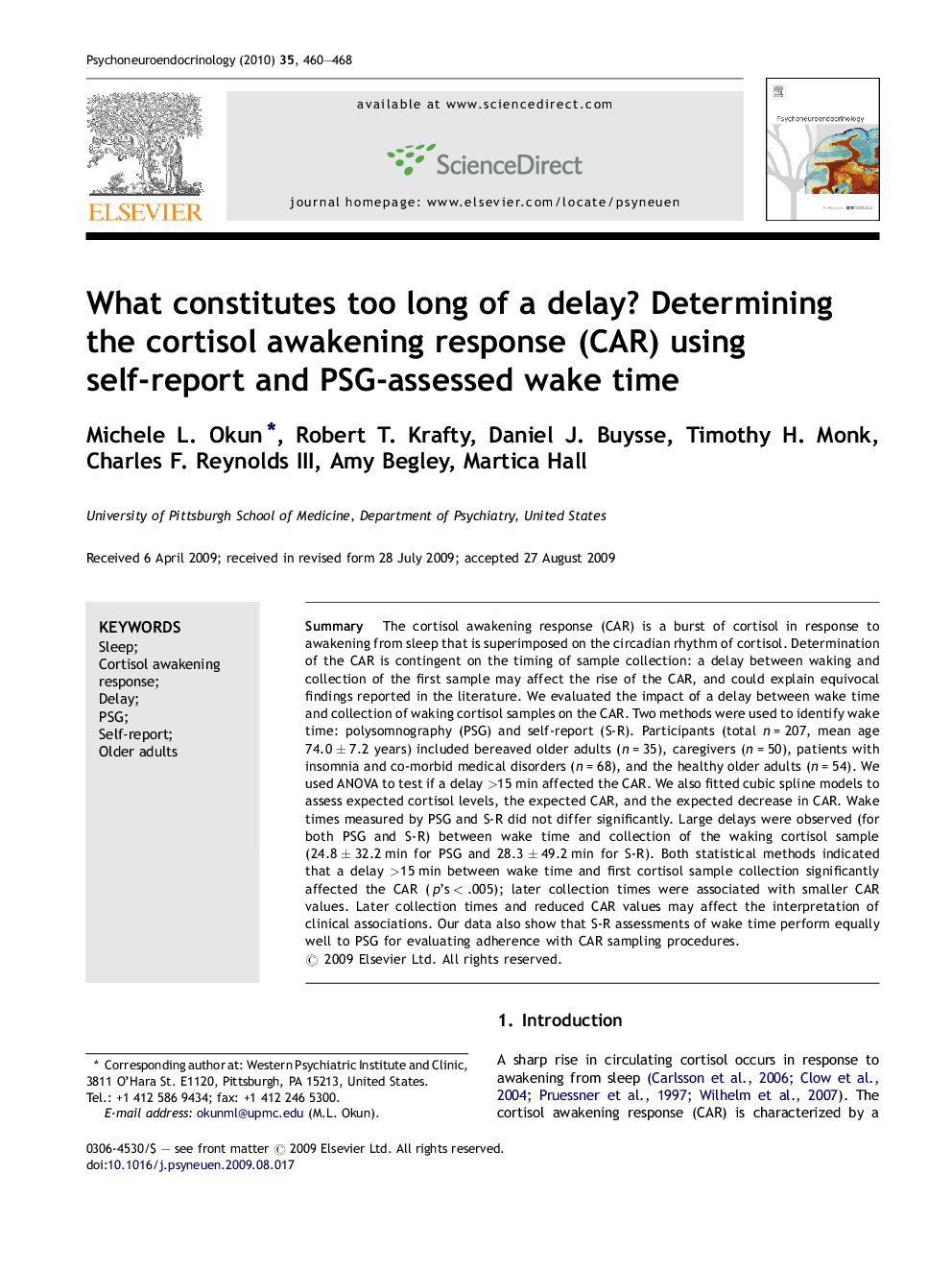| Article ID | Journal | Published Year | Pages | File Type |
|---|---|---|---|---|
| 336055 | Psychoneuroendocrinology | 2010 | 9 Pages |
SummaryThe cortisol awakening response (CAR) is a burst of cortisol in response to awakening from sleep that is superimposed on the circadian rhythm of cortisol. Determination of the CAR is contingent on the timing of sample collection: a delay between waking and collection of the first sample may affect the rise of the CAR, and could explain equivocal findings reported in the literature. We evaluated the impact of a delay between wake time and collection of waking cortisol samples on the CAR. Two methods were used to identify wake time: polysomnography (PSG) and self-report (S-R). Participants (total n = 207, mean age 74.0 ± 7.2 years) included bereaved older adults (n = 35), caregivers (n = 50), patients with insomnia and co-morbid medical disorders (n = 68), and the healthy older adults (n = 54). We used ANOVA to test if a delay >15 min affected the CAR. We also fitted cubic spline models to assess expected cortisol levels, the expected CAR, and the expected decrease in CAR. Wake times measured by PSG and S-R did not differ significantly. Large delays were observed (for both PSG and S-R) between wake time and collection of the waking cortisol sample (24.8 ± 32.2 min for PSG and 28.3 ± 49.2 min for S-R). Both statistical methods indicated that a delay >15 min between wake time and first cortisol sample collection significantly affected the CAR (p's < .005); later collection times were associated with smaller CAR values. Later collection times and reduced CAR values may affect the interpretation of clinical associations. Our data also show that S-R assessments of wake time perform equally well to PSG for evaluating adherence with CAR sampling procedures.
